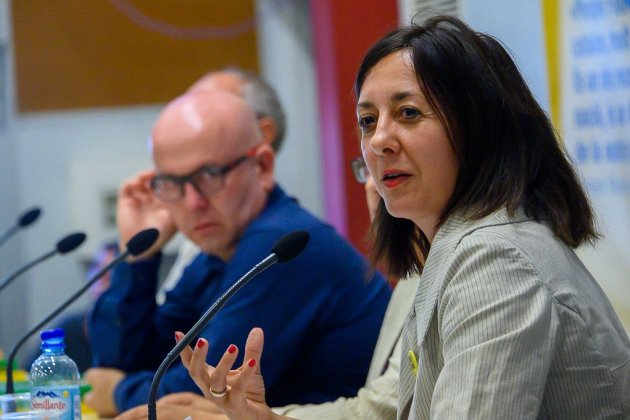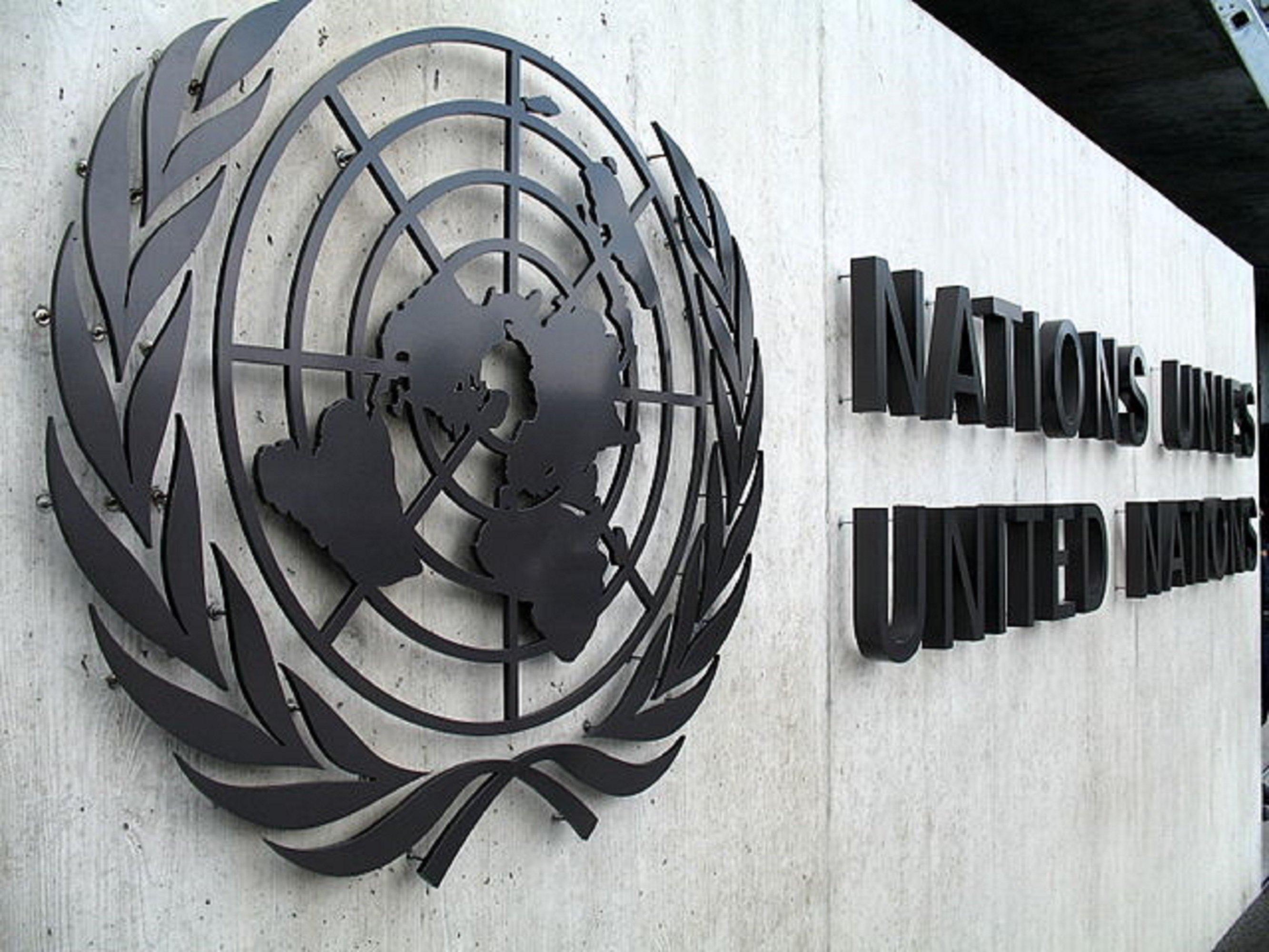With the Supreme Court verdict in the Catalan independence trial pending, and expected to be emphatic, and with the more than obvious discrediting of Spanish justice recently, especially with regard to its handling of the Catalan case, there is growing clarity in the independence movement that the real legal battle will have to be won internationally. A battle which is also beginning to show signs that it will be no cakewalk, and nor will it provide a miraculous solution to the conflict, but one which is seen as crucial.
In this regard, several fronts have opened up, and more will appear in the coming months. The international legal avenue that people might think of first is that of the European Court of Human Rights (ECHR) in Strasbourg - the court which will have responsibility for reviewing the verdicts and sentences in the trial of the 12 Catalan pro-independence leaders, with respect to their compliance with human rights, once the Spanish judicial paths have been exhausted - but the cases of MEPs Carles Puigdemont, Toni Comín and Oriol Junqueras are also being appealed in the Court of Justice of the European Union (CJEU) - and, thirdly, there are the processes being taken forward at the UN.
This third front is, in fact, the one that already has obtained the first victories, but the battle will be long and it is more likely to bear fruit in the long term. That was the argument made this week by one of the promoters of the cases at the United Nations, the Geneva-based human rights professor Neus Torbisco-Casals, in a conversation with El Nacional during the Catalan Summer University held in the Northern Catalan town of Prada.

Torbisco supports an "international legal strategy" for the whole independence movement and an intensification of the international dissemination of the conflict. She also says that despite the fact that Spain has not complied with the resolutions of the UN Working Group on Arbitrary Detention calling for the immediate release of the prisoners, it will be the accumulation of negative resolutions and warnings of breaches of human rights that will cause Spain to be placed on the "black list" of countries in the eyes of the world. The strategy is, then, to aim for a "slow drip" of small victories that end up turning into an authentic torture for the Spanish state and end up making Europe take action.
With respect to this, Torbisco says that when there are fifteen UN resolutions that have ruled against Spain, and these cover a broad spectrum - that is, when the human rights violations reported take in not just politicians but also singers like Valtonyc, the arrests of anonymous demonstrators and journalists - that will be when "Spain will begin to be seen like Turkey".
Torbisco also notes that compliance with UN resolutions is mandatory, despite the fact that there are no mechanisms to ensure they are put into effect, and she speaks of bringing "multiple demands" to the UN, as she believes that this will be the only way to "move" Europe and impact international public opinion.
What cases have been taken to the UN?
Up till now, the independence movement has initiated several cases at the UN, some of which have already received a response (and a positive one). The most important victory so far has been over the question of the release of the Catalan political prisoners. The Arbitrary Detention working group has demanded, in two separate resolutions, the "immediate" release of the political prisoners. The first report referred to the cases of Oriol Junqueras, Jordi Sànchez and Jordi Cuixart, and the second to Joaquim Forn, Raül Romeva, Josep Rull and Dolors Bassa, as the two groups presented their cases separately. Those two rulings cover seven of the nine pro-independence leaders who have been imprisoned "preventively" for most of the last two years. The other two prisoners, Carme Forcadell and Jordi Turull, are following other judicial procedures and did not present their cases to the working group.
The demand for the immediate release of the prisoners is, to date, the case that has had greatest impact, and it signifies a major victory for the prisoners, despite Spain's non-compliance with the request and its attempt to discredit the experts that form the group. It must be remembered, however, that the United Nations has issued hundreds of such resolutions in recent years, two of which refer to cases that took place within the European Union: specifically, the jailing of political activists in France and Poland was challenged and, unlike in the Spanish case so far, the defendants were finally released.
On the other hand, there are two further cases that are in process in the United Nations system and they could obtain a response soon. In March 2018, the defence of Jordi Sànchez lodged an appealed at the UN regarding the fact that he was prevented from being invested president of Catalonia due to his imprisonment. At that time, the UN Human Rights Committee called on the Spanish state to apply precautionary measures to guarantee his political rights. These measures, however, were never granted by Spanish justice. Soon, this committee is expected to make its ruling on whether or not there was a violation of rights.

Photo: Sergi Alcàzar
Finally, there is the case of the president in exile, Carles Puigdemont, who also appealed against the measures which blocked him from being re-nominated as Catalan president in January 2018 - he was the original candidate with majority parliamentary support, following the December 2017 Catalan elections, but was effectively prevented from appearing at the investiture. According to Torbisco, who is part of Puigdemont's defence team along with lawyer Ben Emmerson, the wait for the resolution may be almost over, since normally this type of ruling takes two years and this one was presented a year and a half ago. The defence considers that in this case there was a violation of political and human rights, since the candidate was required to be physically present in Parliament for his investiture to be effective, yet he was also threatened with arrest if he tried to appear.
Torbisco recalls that the UN considers that the prisoners have been arbitrarily imprisoned, and that if Puigdemont had returned to Catalonia, it is likely he would have suffered the same treatment, and for this reason is optimistic that the United Nations will end up ruling in Puigdemont's favour.
Spain's obstructionist attitude to Puigdemont
However, Puigdemont's defence complains that Spain is placing obstacles in the path in order to delay the resolution of Puigdemont's case. With regard to this, Torbisco explains that the state's lawyers are leaving all their presentations of documentation "until the last minute" before deadlines, asking for "all the extensions they can get" and presenting "very long" responses. "They know they have lost," she adds, suggesting that the state's strategy is one of simply delaying the inevitable.
It should also be remembered that the UN makes periodic reviews of all member states in which the human rights cases that they have open are studied. As it happens, Spain is due to sit this exam in January 2020, and it is very clear that these cases will be on the table.

